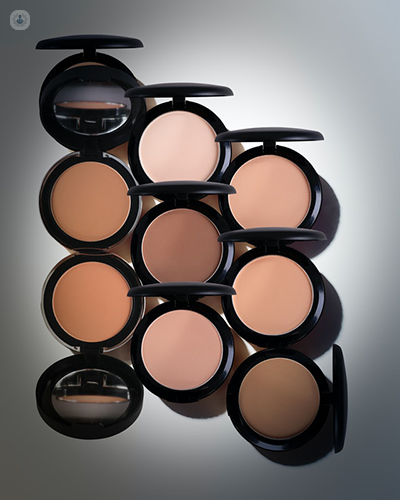Ask an expert: Should I wear makeup if I suffer from acne?
Escrito por:Although acne is a common skin problem, it can affect people’s confidence and self-esteem whether they suffer from it in their teenage years or in adulthood. In this expert guide to acne, leading consultant dermatologist Dr Ravi Ratnavel answers commonly asked questions about the skin complaint and gives specialist advice on selecting makeup and cosmetics, treatment options and when to see a dermatologist.

Are there different types of acne?
Acne is essentially a physiological condition and is a rite of passage for most teenagers. It is usually self resolving but it can cause quite a lot of physical destruction to the skin when it's at its most active. It can, of course, also affect patients in terms of self-esteem and confidence. There are other types of acne such as late persistent acne, where people don’t outgrow their acne in their teenage years and continue to suffer from it into adulthood. There are also patients who experience late onset acne, which develops in adulthood. This tends to be more common amongst women rather than men.
Is family history a factor in acne?
Family history, as for so many conditions, is very important in terms of acne. This is not always the case but usually when a patient has severe acne, one or both of their parents experienced similar symptoms as a teenager.
Can acne resolve itself? Are over-the-counter products beneficial?
Acne can resolve itself naturally in the sense that it is a physiological condition which, for many people, improves by itself over time. There aren't too many alternative non-pharmacological products that are effective for acne. However, there are many cosmetics and over-the-counter products which use some ingredients used by dermatologists, such Salicylic acid and Benzoyl peroxide, which can help with milder cases of acne.
If your acne is not responding to over-the-counter treatments, see your family doctor in the first instance. Alternatively, come and see a dermatologist and we can formulate a tailored program of treatment to control and ideally clear your skin permanently.
How do dermatologists treat acne?
The treatment strategies are relate to controlling the severity of the condition and waiting for patients to outgrow their acne, particularly when they are teenagers. To do this, we use anti-inflammatory medication, which can be topical (applied to the skin) or tablets that are taken orally. For those patients who have scarring acne, we usually give a vitamin A product known as a Roacutane in the UK or Accutane in other parts of the world as a supervised course of treatment. This can be very effective in clearing acne.
Should people with acne use makeup?
If you have acne, you can use makeup but I would only recommend using oil free or non-comedogenic (non-pore blocking) products. For some individuals with very acne prone skin, even oil free makeup can be pore blocking. It’s also worth remembering during the summer months that sunscreen should also be oil free. I also recommend avoiding exfoliative cleansing regimes, such as facial scrubs and exfoliators.
Are people who suffer from acne at greater risk of developing skin cancer?
Patients with acne are not at increased risk of skin cancer. However, there are patients who become aware that sun exposure clears their skin. It is very important to be careful with sun protection as greater exposure does increase the risk of skin cancer. Additionally, some years ago, dermatologists used to give phototherapy or UV light treatments when today’s effective treatments weren’t available. These types of treatments do increase the risk of skin cancer.
What is the difference between acne and rosacea?
Acne and rosacea are actually two completely different conditions, which share a common similarity of small red or purple bumps or pustules on the skin. The essential difference is that rosacea tends to occur in later life and it is non-scarring whereas acne tends to occur earlier in life and can be scarring. The time course of response to common antibiotic treatments can also be different in that patients with rosacea tend to respond quicker, within four weeks or so, as opposed to acne patients who usually take a little longer.
If you would like to book a consultation with Dr Ratnavel to discuss acne or another skin problem, don’t hesitate to visit his Top Doctors profile.


